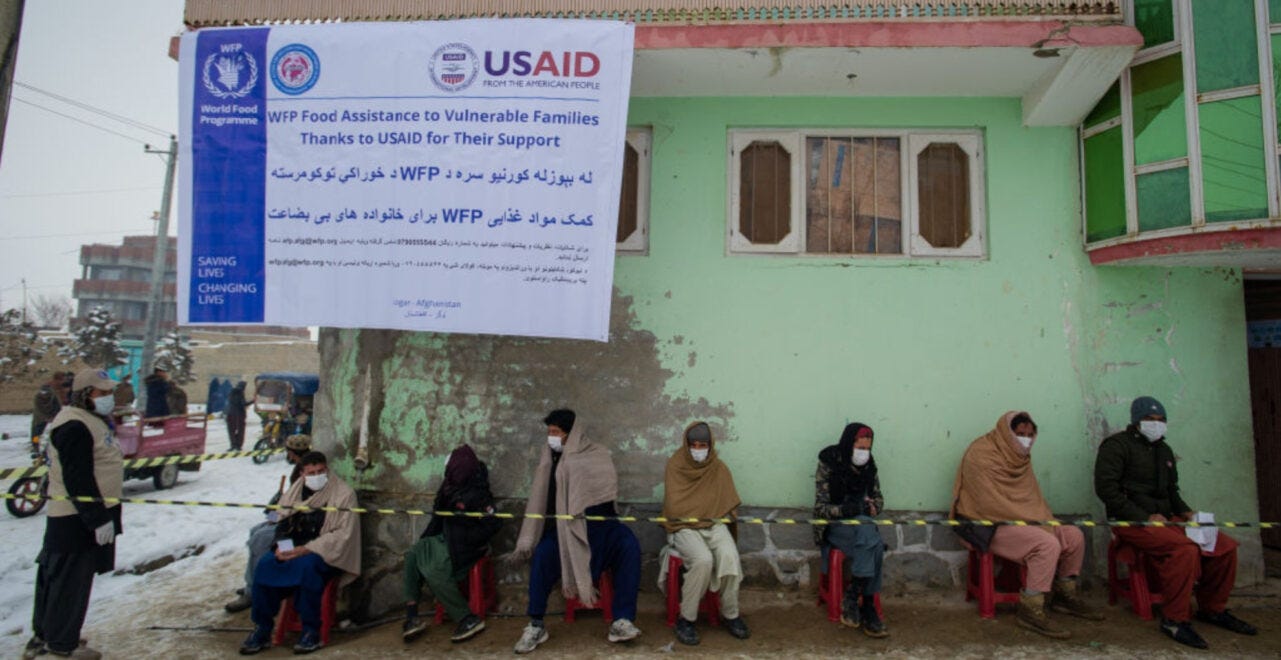Trump’s War on Civil Society Reaches Afghanistan
Afghan civil society organizations have remained resilient under Taliban rule. The end of USAID may change that.

By Fayez Sahak
President Donald Trump has put the last nail in the coffin of civil society in developing countries. Afghanistan is no exception. In early 2024, almost a year before President Trump’s re-election, I was hired by an international humanitarian organization. My role was to assess how local civil society organizations (CSOs) in Afghanistan were struggling with the new policy environment in the country. While many outspoken diaspora activists were claiming that CSOs were completely dysfunctional due to the Interim Taliban Administration’s (ITA) restrictions, what I found was quite to the contrary.
There is no doubt that civil society organizations – particularly women-led entities – are not functioning as effectively as they did during the US-supported Republic. The space for civil activism has shrunk. The Taliban called on organizations not to run advocacy and human rights related projects because they view such interventions as western agendas and “un-Islamic.”
Based on discussions with members and staff of women-led CSOs in twelve geographical locations of Afghanistan, a trend emerged from the analysis of the intricate landscape of Afghanistan's civil society milieu: most CSOs are compact in size, with approximately two-thirds grappling with limited permanent staff because of financial constraints. Women's representation across CSOs is constrained by recent employment restrictions and conservative norms, impacting their involvement in both CSOs and private companies. Inclusive practices vary, with mid-range CSOs showing better knowledge of gender diversity.
Despite facing operational challenges due to the current crisis, existing CSOs remained resilient and expressed a strong interest in keeping the country’s civil society alive. Women in urban areas changed the licenses of their organizations and put them under the names of their male family relatives as a strategic move to avoid being shut down. These women maintained their relationship with donors and often engaged with them behind the scenes, discussing the design of their projects while assigning their male staff to lead field operations. Meanwhile, female staff managed activities indoors. This trend was quite visible in women-led organizations that were mandated to operate in major cities, including Kabul.
CSOs in rural areas, facing challenges from stringent Taliban restrictions, have experienced diminished influence. Yet their enduring community trust signals the potential for resurgence upon regulatory reforms. Most of the CSOs outside Kabul were generally able to establish relationships with the Taliban and engaged with the local authorities by shifting their focus from human rights and democracy to food insecurity and health. Donors also wanted them to adapt to the new policy environment for security concerns.
Despite their ability to sustain themselves, the recent decision of President Trump to shut down the United States Agency for International Development (USAID) has pushed these civil society organizations to the brink of collapse. USAID was a major donor to Afghan CSOs, supporting humanitarian and development projects. It poured around four billion dollars into the country since the hasty withdrawal of US forces by Joe Biden in 2021. With USAID’s support, local CSOs could maintain their humanitarian programs, and resist authoritarian practices. By freezing foreign aid, President Trump is making the survival of CSOs highly uncertain and hindering efforts to protect civic space.
Before Trump came into office, it was thought that CSOs had a chance to save the civil society of Afghanistan. I personally recall telling donors in Western capitals how vital it is to note that strategic partnership with active CSOs in the current context of Afghanistan is multifaceted and intersectional, and that no single approach or standalone program holds all the required solutions. Until recently, it was still possible to support civic space in Afghanistan through a strategic partnership approach that required persistence, sustained human and financial resources, an intimate knowledge of the ground level including local dynamics, and a strong commitment to mentorship. Nevertheless, with growing populist rhetoric against foreign assistance coming out of the Oval Office, it remains to be seen whether civic space, particularly in the Global South, will be able to survive a Trump presidency.
Fayez Sahak is a service-oriented professional with 7 years of experience in adaptation/mitigation and monitoring & evaluation, specializing in gender-responsive evaluations and policy development. Fayez has worked extensively on gender equality, climate change, migration, and food insecurity, supporting women’s organizations and marginalized groups. His expertise includes climate resilience, carbon emission reduction, and rigorous monitoring frameworks. Currently, Fayez is at the Max Bell School of Public Policy to deepen his knowledge in policy development, focusing on the intersection of climate change, global environmental security, and humanitarian issues.



